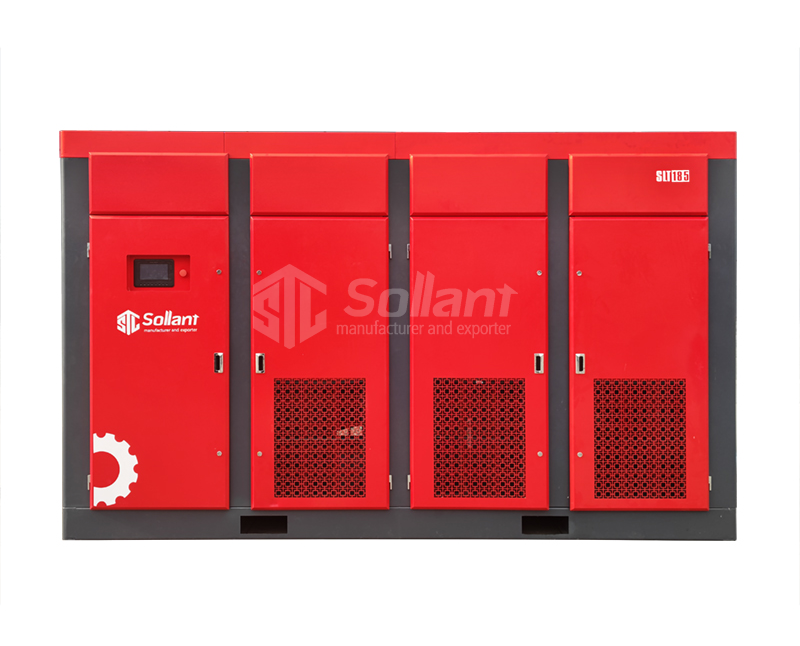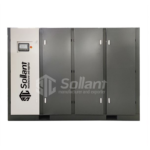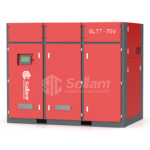Screw air compressors can improve concrete pumping efficiency through the following aspects:
Increased air pressure:
Screw air compressors can provide higher air pressure to the pneumatic system that powers the concrete pump. This allows the pump to run more efficiently, reducing the time and effort required to pump concrete.
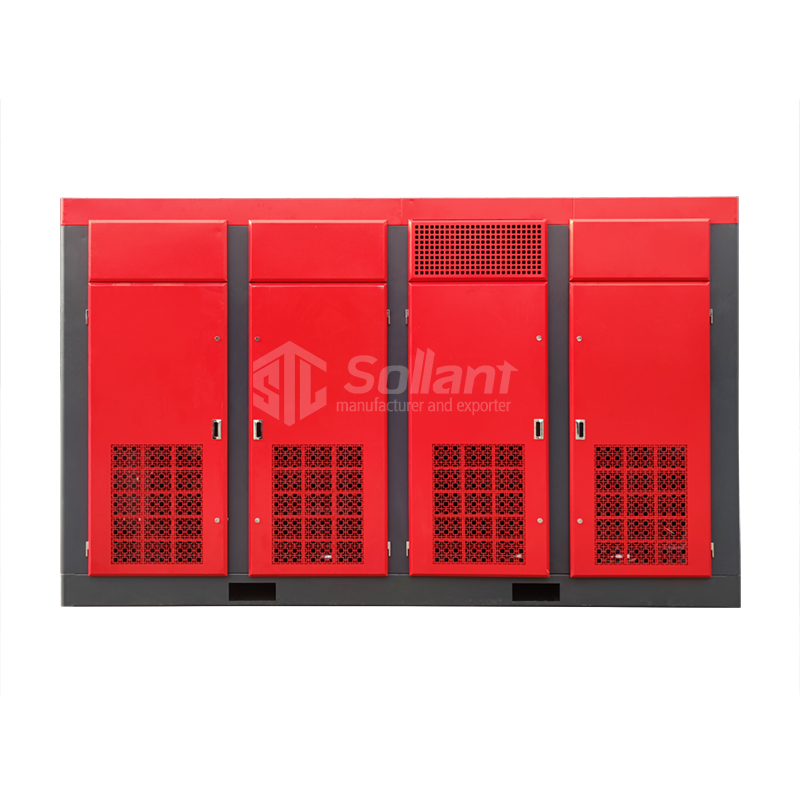
Consistent Airflow:
Screw air compressors provide consistent and reliable airflow to the pneumatic systems that power concrete pumps. This helps maintain a steady pump rate and prevents pressure fluctuations that could delay or interrupt the pumping process.
Reduced Downtime:
Screw air compressors are designed for continuous operation, which means they can run for extended periods of time without maintenance or repairs. This reduces downtime and ensures that the concrete pumping process can continue without interruption.
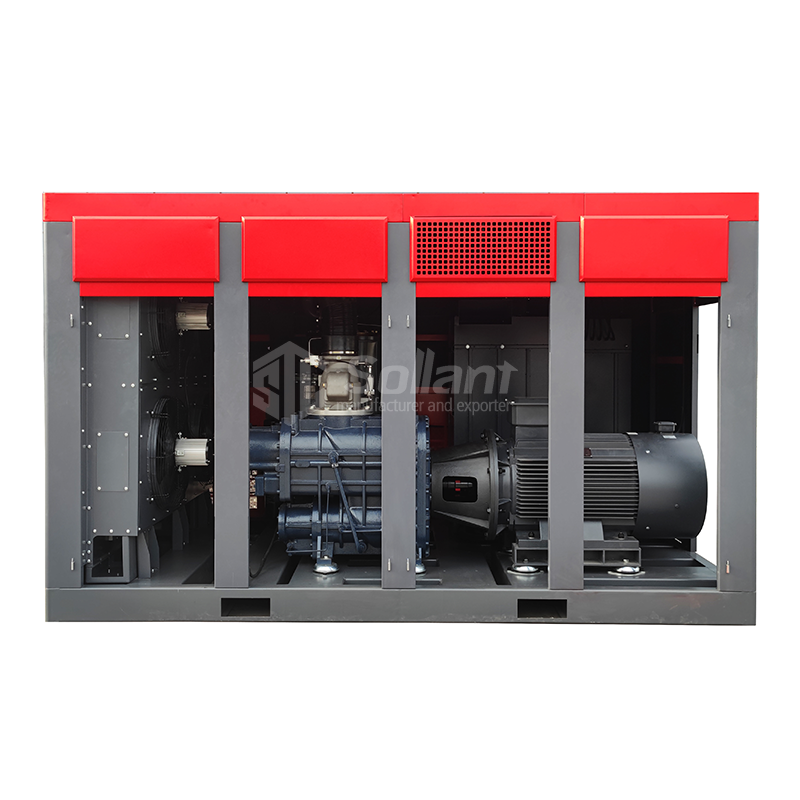
Increased Durability:
Screw air compressors are built to withstand harsh operating conditions and frequent use. This means they can meet the demands of concrete pumping operations and provide years of reliable service.
Energy Efficiency:
Screw air compressors are energy efficient, which means they can provide high levels of air pressure while using less energy than other types of compressors. This helps reduce operating costs and increases the overall efficiency of the concrete pumping process.
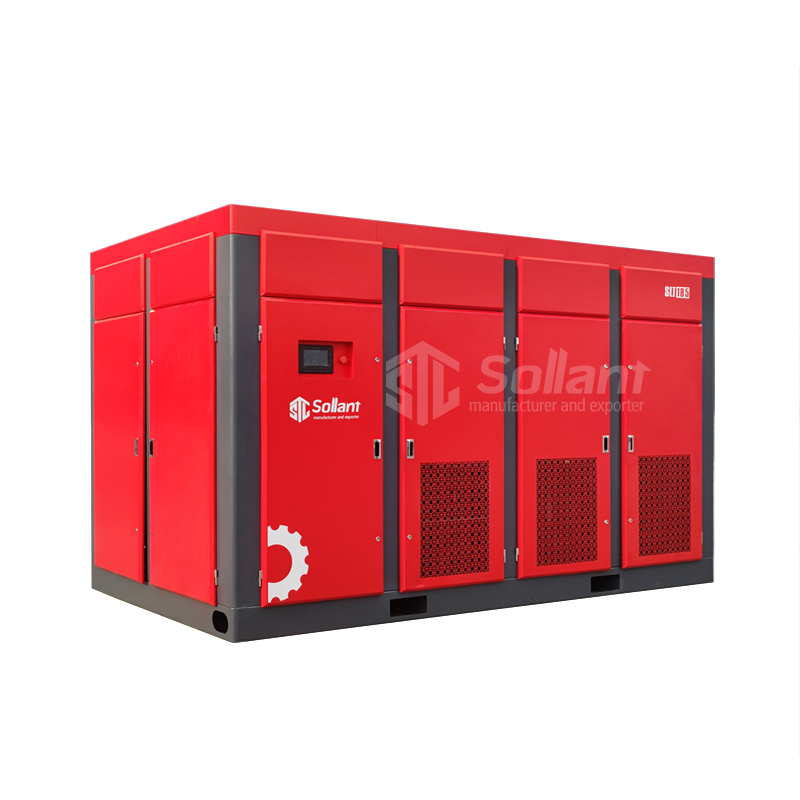
There are several factors to consider when choosing the right air receiver capacity for concrete pumping:
Pumping Demand:
Determine the gas demand of the concrete pumping system. This can be determined according to the size, pumping speed and duration of the pumping project. Larger-scale projects usually require larger-capacity gas storage tanks.
Pressure Requirements:
Determine the minimum and maximum gas pressure required. During the process of concrete pumping, the pressure fluctuates greatly, so the gas storage tank should be able to provide enough gas storage capacity to balance the pressure difference.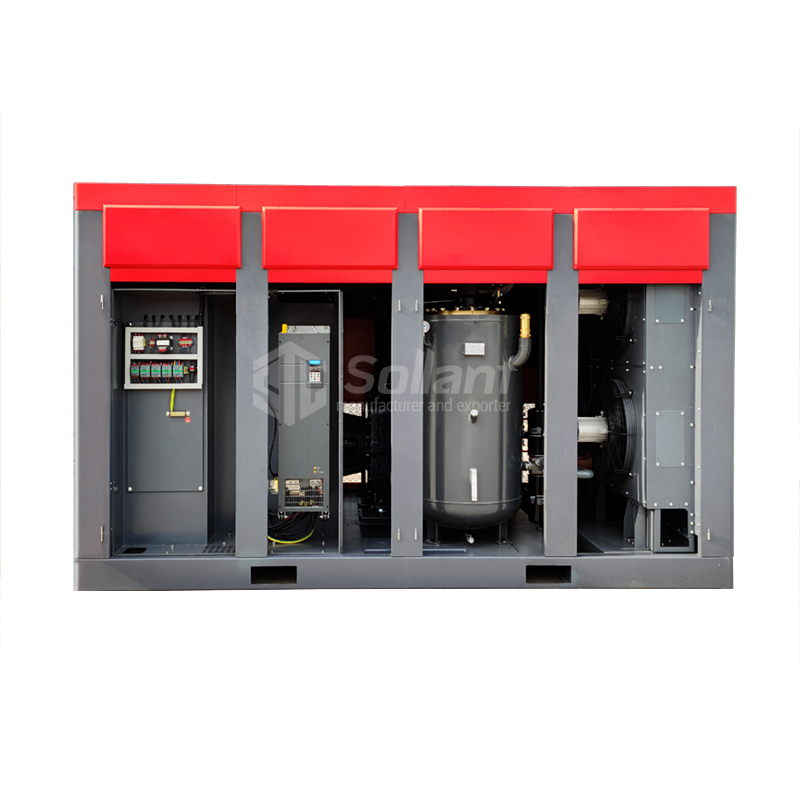
Compressor output:
Consider the output capacity of the screw air compressor. The capacity of the air storage tank should match the output capacity of the air compressor to ensure continuous and stable air supply.
Air storage tank pressure:
Select the rated working pressure of the air storage tank to be higher than the maximum pressure required by the concrete pumping system. This ensures that the air receiver can still meet the pressure requirements under full load conditions.
Stability requirements of the pumping system:
If the concrete pumping system requires high stability of gas supply, the capacity of the gas storage tank should be increased accordingly to provide a more stable gas source.
Space and Weight Constraints:
Consider available space and weight constraints. According to site conditions and engineering constraints, select the appropriate gas storage tank capacity.
Economy:
The choice of gas storage tank capacity is also affected by economic factors. Larger capacity air tanks cost more, while smaller capacity air tanks may need to be refilled more frequently, increasing energy consumption.
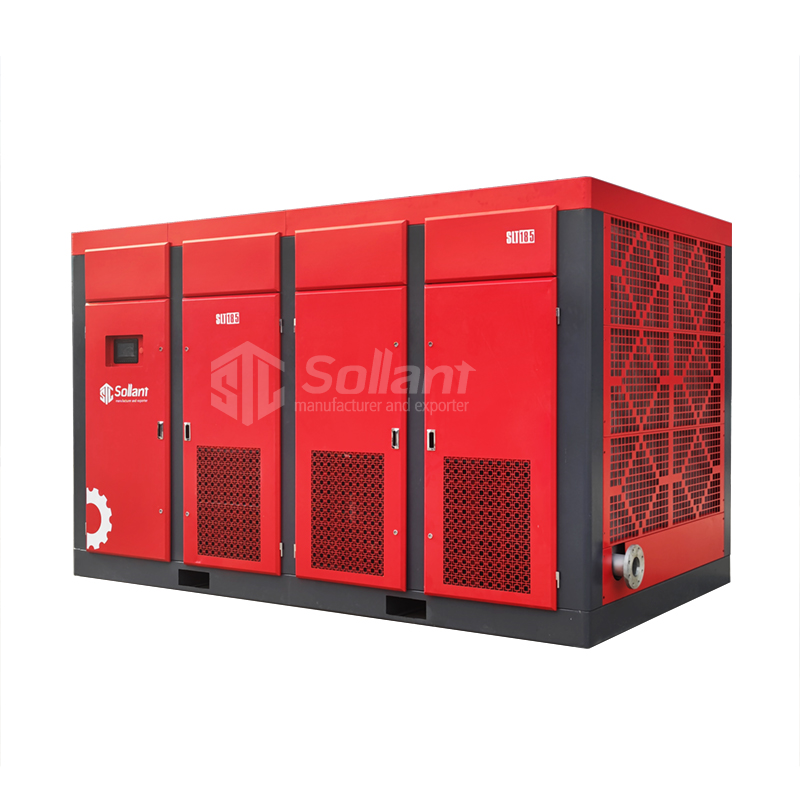
Overall, screw air compressors can improve concrete pumping efficiency by providing a reliable and stable source of compressed air to power the pump. This helps reduce downtime, increase productivity and improve the overall quality of the pumped concrete.
The brand “Sollant” specializes in the R&D, manufacturing, sales and after-sales of compressors, oil-free compressors and hosts, special gas compressors, various air compressors and post-processing equipment. Provide customers with high-quality, environmentally friendly and Efficient air system solutions and fast and stable technical services. Sollant Corporation is customer-centric. Customer satisfaction is the purpose of our Sollant people.
Sollant Focus on Energy Saving.

